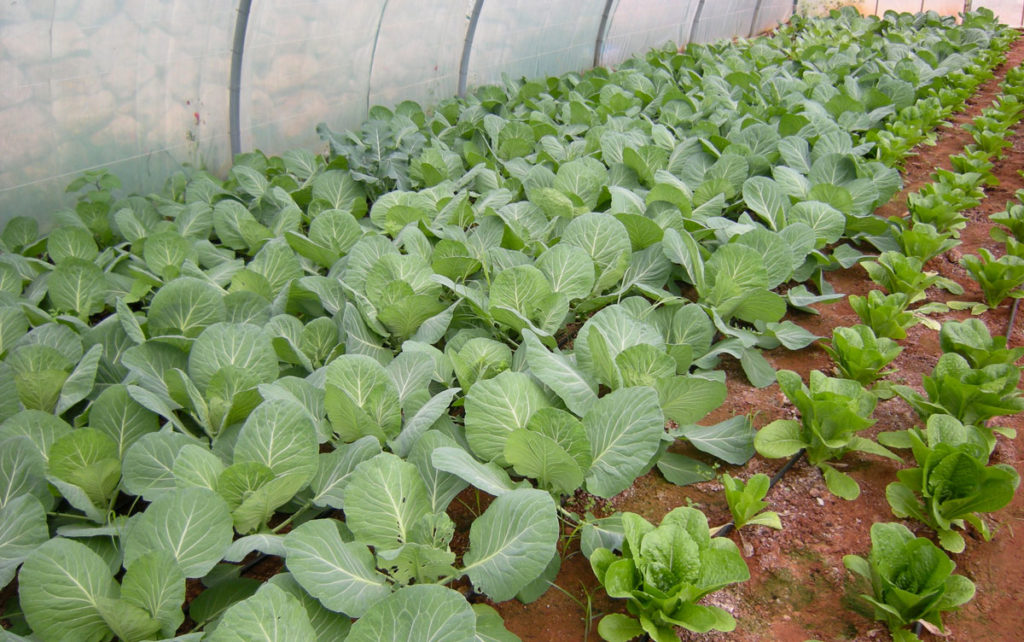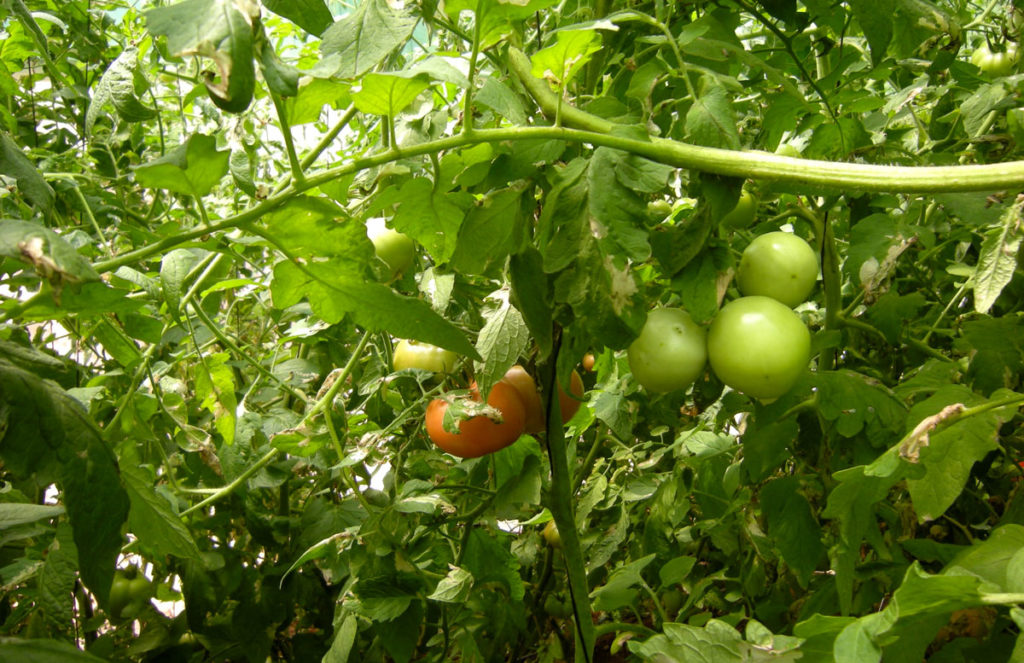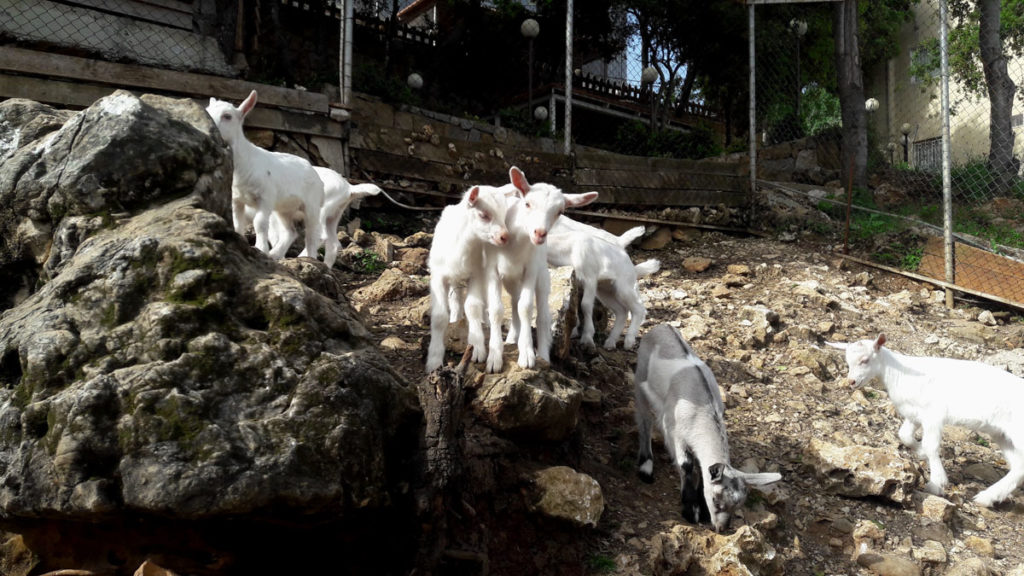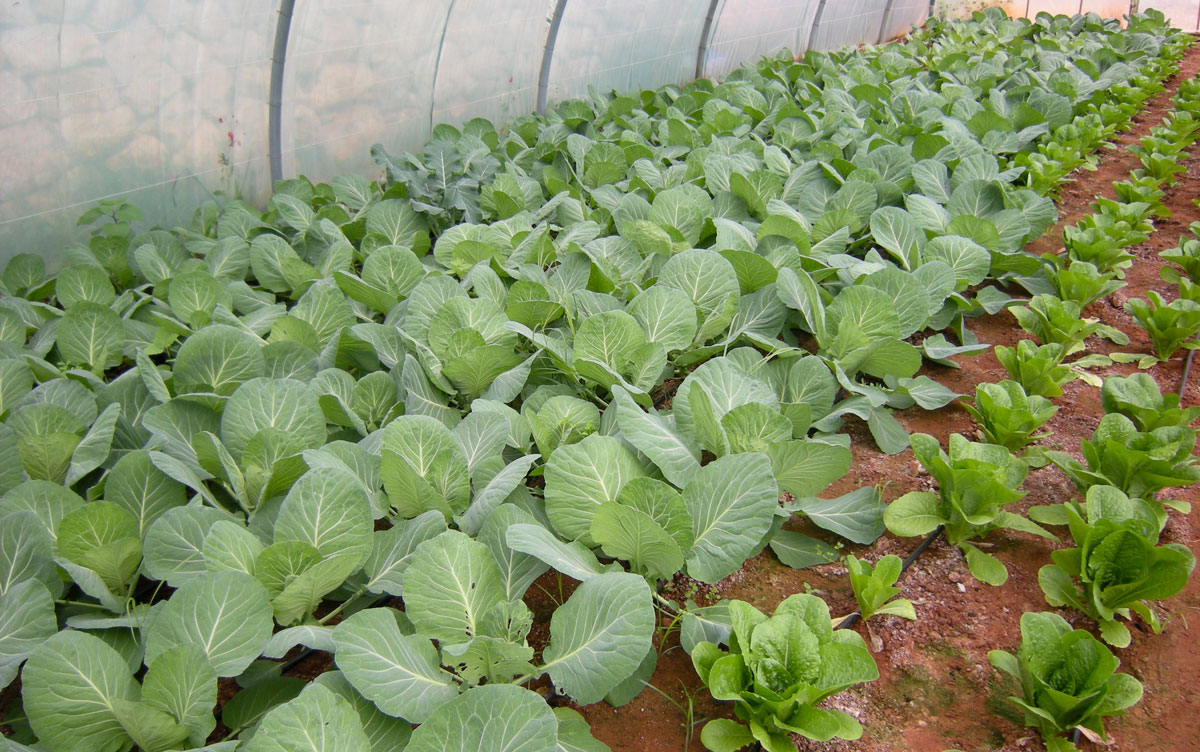Sehaile and Fatqa, August 2019.
The international cooperation project “Strengthening of prevention, rehabilitation and social and economic reintegration services for drug addicts and former drug addicts in Lebanon”, funded by the Italian Agency for Development Cooperation (AICS) and implemented by CTM, in partnership with the Lebanese Association Oum el Nour, foresees, among other things, the realization of a social agriculture intervention, in collaboration with the Italian partner ASeS-CIA.
In the first two years, the necessary infrastructures for the realization of agriculture and breeding interventions were realized and the staff of Oum el Nour dedicated to these activities was formed.
At the beginning of the third year of the project, all agricultural and breeding productions are in full expansion.

In the two greenhouses installed at the Rehabilitation Center of Sehaile, in June and July 2019, more than one thousand five hundred kilos of cucumbers and nearly one thousand kilos of tomatoes were collected; in the greenhouse installed at the Fatqa Rehabilitation Center, over the same period, more than 250 head cabbage and more than 400 heads of salad were collected.

As for the breeding, the four chicken shelters installed in the two Centers allowed the production of almost three thousand eggs while the goat breeding produced over one hundred kilos of yogurt and more than thirty kilos of cheese.
These are interesting data as they indicate that the activities are becoming important and profitable for Oum el Nour, which in this way can directly supply the two kitchens of the Rehabilitation Centers, realizing substantial savings compared to external purchases, and also sell the product surplus.

In addition to these economic and productive aspects, what matters most is the involvement of the residents of the two Centers in the management of the activities. Very hesitant, if not even opposed, at the outset, residents begin to appreciate these activities. In particular, goat breeding is enjoying considerable success. Residents who claimed to hate these animals, now spend hours of their time with the six goats and their eight little ones. Some even think of undertaking this type of activity once the rehabilitation process has ended.
A further proof that “the earth cares for those who care for the earth”.

